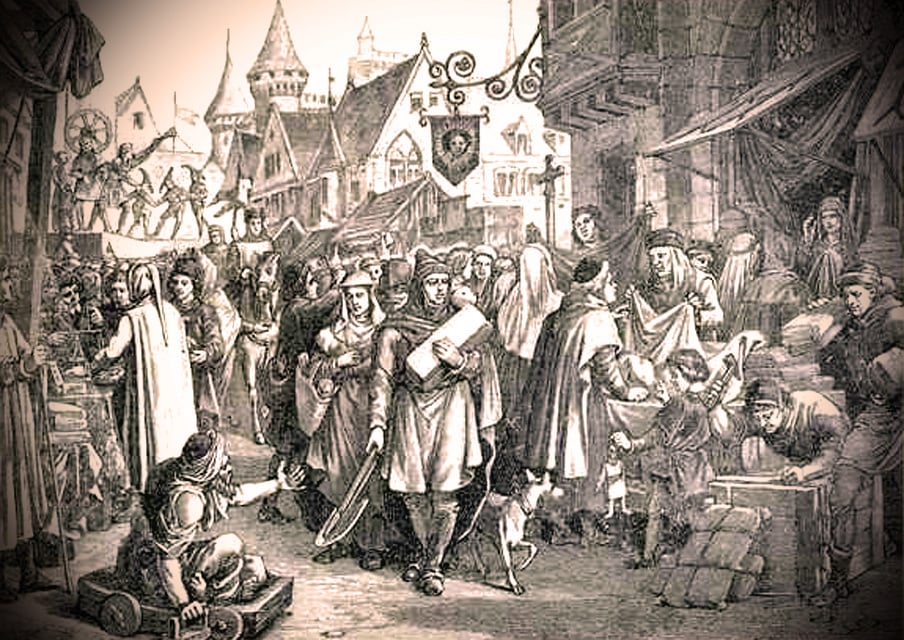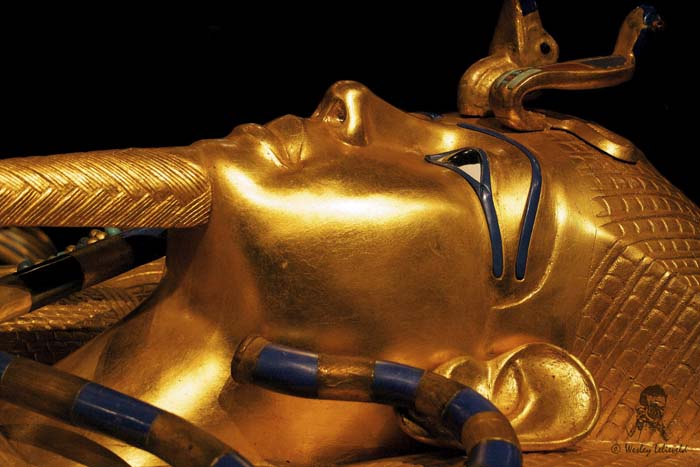Champagne Fairs: An Important Center for European Trade
Following up on Trade Routes: Kashgar, an Oasis Along the Silk Road, this week we’ll discuss the annual Champagne Fairs held in France. Arising in the 12th century, they were important center of international trade in Europe for 80 years.
---
Trade fairs were events typically held annually in large towns where people could find a greater range of goods than they might find in their local market and traders could buy goods wholesale.
The fairs of Champagne are perhaps the most famous of the medieval European fairs. They originated during the first half of the 12th century as a center for the sale of horses and developed from local markets to regional markets and finally to fairs of Europe-wide importance.
Fairs boomed in France, England, Flanders, and Germany in the 12th and 13th centuries CE, with one of the most famous areas for them being the Champagne region of France.
Before fairs merchants traveled on trade routes between north and south that followed the Meuse, Saône, and Rhône Rivers.
Around 1180 AD, the county of Champagne, located in what is now northern France, and independent of the French crown, began hosting a series of trade fairs that drew merchants and financiers from all over Europe.
The fairs, which were one continuous, year-round affair, moved between six Champagne towns over the course of the year, lasting several weeks in each town. A fair began with a period of eight days, during which merchants set up, followed by the days allotted for the cloth fair, the leather fair, and the sale of spices and other goods sold by weight.
The Champagne fairs flourished as the most important center of international trade in Europe for 80 years. They were important in the spread and exchange of cultural influences and operated as the fulcrum of international exchange in Europe for much of the thirteenth century.
The Champagne fairs rapidly declined after 1300, one explanation is that merchants started sailing directly to London and Bruges for trade. By the 15th century CE trade fairs had gone into decline as the possibilities for people to buy goods everywhere and at any time had greatly increased.
Ready to invest in digital marketing for your business? Let's work together to create a plan designed around optimizing your business directory listings, while incorporating search engine optimization (SEO), content marketing, search engine marketing, lead generation and website design to ensure that your accounting practice is optimized to help you reach your goals.



